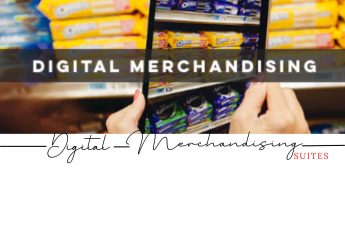Types of POS Systems
What are the different types of POS systems?
A point-of-sale (POS) system is a crucial tool for any business that sells products or services. It is an electronic system that allows businesses to process transactions, manage inventory, track sales, and generate reports. With the variety of POS systems available in the market, it can be challenging to choose the right one for your business. Here are some of the common types of POS systems to help you make an informed decision:
- Traditional POS Systems: This type of POS system is also known as a “legacy” system, and it typically includes a desktop computer or terminal, a cash register, and a barcode scanner. It is a reliable and robust system that is suitable for large businesses with multiple locations.
- Mobile POS Systems: Mobile POS systems are designed for businesses that require mobility and flexibility, such as food trucks, pop-up shops, or street vendors. They are portable, lightweight, and typically run on tablets or smartphones. Mobile POS systems can accept credit card payments and process transactions on the go.
- Cloud-Based POS Systems: Cloud-based POS systems are becoming increasingly popular due to their affordability, accessibility, and scalability. They operate on a cloud platform, which means that businesses can access their data from anywhere with an internet connection. Cloud-based POS systems are suitable for small to medium-sized businesses with a limited budget.
- Self-Service Kiosk POS Systems: Self-service kiosk POS systems are designed to reduce wait times and improve the customer experience. They allow customers to place their orders, customize their meals, and pay for their purchases using a touch screen interface. Self-service kiosks are commonly used in fast-food restaurants, cinemas, and airports.
- Tablet POS Systems: Tablet POS systems are similar to mobile POS systems but are typically larger and more robust. They run on a tablet device and are suitable for businesses that require mobility, such as restaurants or cafes. Tablet POS systems offer a range of features, such as order management, inventory tracking, and reporting.
In conclusion, choosing the right POS system depends on the specific needs of your business. Each type of POS system has its advantages and disadvantages, so it is essential to consider factors such as your budget, the size of your business, and the features you require. With the right POS system, you can streamline your operations, improve the customer experience, and grow your business.
How many different types of POS systems are there?
There are many different types of POS (point-of-sale) systems available in the market, each with their own unique features and benefits. While it is difficult to provide an exact number, here are some of the most common types of POS systems:
- Traditional POS Systems: Also known as legacy POS systems, these are the most traditional type of POS systems. They typically consist of a desktop computer or terminal, cash register, barcode scanner, and other peripherals. They are typically used in larger retail or hospitality businesses with multiple locations.
- Mobile POS Systems: Mobile POS systems are designed to be portable and lightweight, making them ideal for businesses that require mobility and flexibility. These systems typically run on a tablet or smartphone and can process transactions on the go. They are commonly used by food trucks, pop-up shops, and other small businesses.
- Cloud-Based POS Systems: Cloud-based POS systems are becoming increasingly popular due to their affordability, accessibility, and scalability. They operate on a cloud platform, which means that businesses can access their data from anywhere with an internet connection. These systems are suitable for small to medium-sized businesses with a limited budget.
- Self-Service Kiosk POS Systems: Self-service kiosk POS systems are designed to reduce wait times and improve the customer experience. They allow customers to place their orders, customize their meals, and pay for their purchases using a touch screen interface. Self-service kiosks are commonly used in fast-food restaurants, cinemas, and airports.
- Tablet POS Systems: Tablet POS systems are similar to mobile POS systems but are typically larger and more robust. They run on a tablet device and are suitable for businesses that require mobility, such as restaurants or cafes. These systems offer a range of features, such as order management, inventory tracking, and reporting.
- Hybrid POS Systems: Hybrid POS systems combine the features of traditional and cloud-based POS systems. They typically consist of a combination of hardware and software and can operate both online and offline. These systems are suitable for businesses that require the flexibility of cloud-based systems but also need the reliability of traditional systems.
In conclusion, there are many different types of POS systems available, each with their own unique features and benefits. Choosing the right POS system for your business depends on your specific needs and requirements, such as your budget, the size of your business, and the features you require.
What other types of systems could interact with the POS?
Point-of-sale (POS) systems are an integral part of modern retail and hospitality businesses, enabling efficient and accurate transactions, inventory management, and data analysis. In addition to their core functionality, POS systems can also interact with a wide range of other systems to enhance their capabilities and provide businesses with more comprehensive solutions. Here are some examples of other systems that can interact with POS systems:
- Inventory Management Systems: POS systems can be integrated with inventory management systems to automate inventory tracking and management. This integration ensures that businesses always have up-to-date information on stock levels and can quickly reorder products when needed.
- Customer Relationship Management (CRM) Systems: CRM systems can be integrated with POS systems to capture customer data and provide insights into customer behavior and preferences. This integration enables businesses to create personalized marketing campaigns and improve customer engagement.
- Accounting Systems: POS systems can be integrated with accounting systems to automate financial reporting and streamline accounting processes. This integration enables businesses to track revenue, expenses, and profits in real-time, ensuring accurate financial reporting and analysis.
- Payment Gateways: Payment gateways can be integrated with POS systems to process online payments and streamline the payment process. This integration enables businesses to accept a wide range of payment methods, such as credit cards, debit cards, and mobile payments.
- Loyalty Programs: POS systems can be integrated with loyalty programs to reward customers for their loyalty and encourage repeat business. This integration enables businesses to offer personalized rewards, such as discounts and free products, based on customer purchase history.
- Marketing Automation Systems: Marketing automation systems can be integrated with POS systems to create targeted marketing campaigns based on customer data. This integration enables businesses to automate marketing tasks, such as email marketing and social media advertising, and improve their overall marketing ROI.
In conclusion, POS systems can interact with a wide range of other systems to enhance their capabilities and provide businesses with more comprehensive solutions. Choosing the right combination of systems depends on the specific needs and requirements of the business, such as its size, industry, and customer base. By integrating POS systems with other systems, businesses can streamline processes, improve efficiency, and drive growth.



